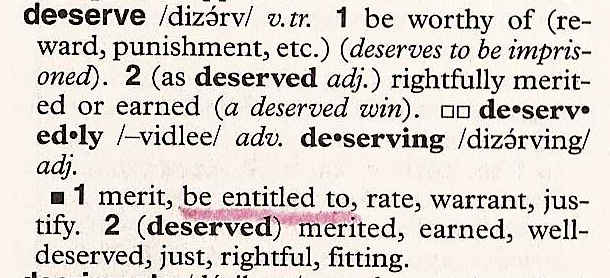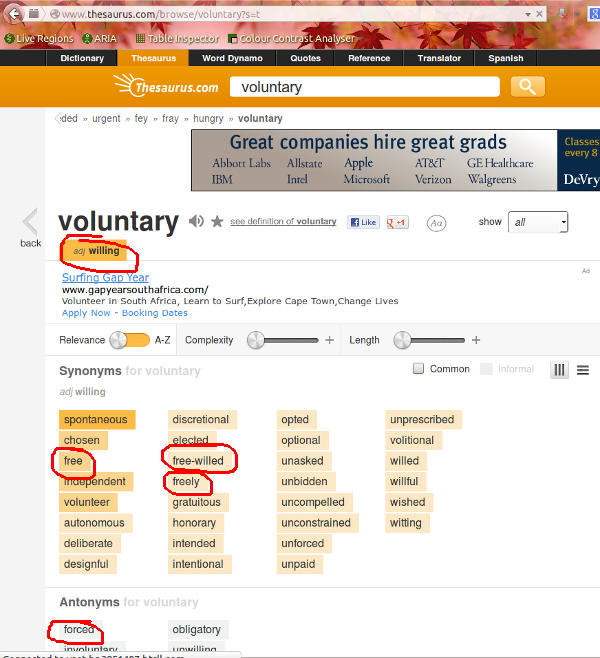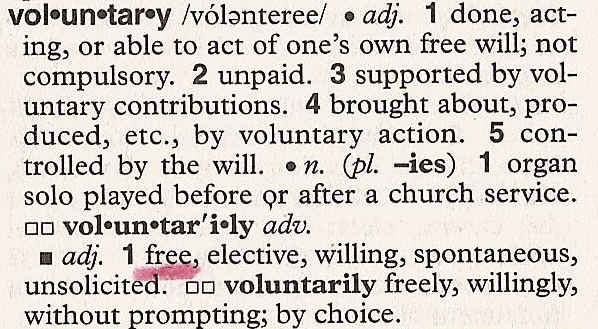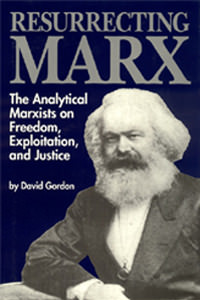Why write an article on a subject you know nothing about?
Why not? It never stopped Mises Daily from writing ’bout economics.
You walked into that 1, guys.
Anyway, some philosopher named Amia Srinivasan @ the New York Times made the mistake o’ taking laissez-faire libertarianism seriously & civilly asked ’bout their many logical inconsistencies as good moderate liberals always do. The Mises Institute Mises Daily, parroted by the Mises Institute, as every narcissistic political group that views themselves as the greatest victims in the world, take this as further evidence o’ the mainstream media’s irrational hatred o’ the 1 true economic system. This time that charge is led by David Gordon in The New York Times Got Libertarianism Wrong Yet Again.
What Srinivasan does is compare 2 laissez-faire libertarians—1 who was so anal that he himself used the term Utopian in his book, showing that even he knew he was full o’ shit—& 1 who tries to temper his crazy religion with some acknowledgement o’ reality. These comparisons are common ’mong good moderate liberals: much as there’s the “civil” or “rational” Republican as opposed to the loud-mouthed louts liberals are used to getting misspelled death threats from, there is the dream o’ the laissez-faire libertarian who doesn’t type his posts from a subterranean cave.
I disagree with her claim that either o’ them might be rational, but that’s not the topic now. What is is Gordon’s illiteracy:
It isn’t just that he finds it “difficult to say” that you deserve what you get in the market. He doesn’t say it at all. […] In his account, you get what you are entitled to, a very different matter.
Thesaurus.com & Oxford disagree:


Gordon tries to distinguish these terms by defining the former as “patterned” & Nozick’s as “historical,” despite neither o’ these having any relevance to these terms. Nor does he describe what he means. It’s clear that Srinivasan’s examples o’ people being poor or rich due to luck are based on the past, & thus just as historical as whatever Nozick’s beliefs are—’less Gordon doesn’t understand what that word means, either.
The example he gives offers no further understanding, either: someone needs a kidney, someone else has 1 ideal for the picking. Should the latter be forced to give it up? He connects this to income, despite many significant differences. He acknowledges that these are morally arbitrary, but nevertheless insists that to redistribute income or kidneys would be wrong ’cause they’re “entitled to them.” He doesn’t answer why or how this doesn’t fall under Srinivasan’s problem.
Furthermore, the income example is flawed, since it’s not intrinsically connected to one’s body & can be redistributed without even touching its owner. If 1 loiterer’s on ’nother’s property, she is not coercing him in any way; in contrast, if the latter does force her to leave, he is using coercion. Only in laissez-faire libertarians’ arbitrary definitions for “coercion,” “freedom,” or “entitled property” is this different; & they have no cause to complain if one refuses to accept their arbitrary definitions.
The question to ask is, if property control—& that’s what it is, the control over others’ use o’ certain property, regardless o’ what they want to call it—is not based on merit, what is it based on? In order for the market to be defended as an objectively just mechanism for distributing property—’bove the public’s opinion or other consequentialist concerns—then it must have an objective measure o’ value to compare it to. If not, then market economics is nonfalsifiable & unscientific—an economic theology.
His linguistic blunders continue:
He does not hold that “any exchange between two people in the absence of direct physical compulsion by one party against the other (or the threat thereof) [is] necessarily free.” He does say that if you face severely limited options, and your predicament comes about because others have acted within their rights, your choice is still voluntary. This is a rather more nuanced claim, a matter that escapes Srinivasan’s attention.
No it isn’t: it’s the same thing. Free & voluntary mean the same thing. If one is not necessarily free then, by definition, their actions are not voluntary. I turn to Oxford & Thesaurus.com ’gain:


What annoys me most ’bout Austrian-schoolers is that relying on deductive reasoning would require godly-perfect logical thinking for a brilliant linguist—keeping in mind that praxeology bases its strength purely on the words it’s based on, rejecting math as well. So it’s shocking how linguistically ignorant Austrian-schoolers are. Or a’least their readers are: Gordan could be intentionally using Orwellian language for propaganda purposes.
He complains ’bout Srinivasan’s confusion, which shows a lack o’ self-awareness, considering the word-twisting he uses. If New York Times writers get libertarianism wrong, it can probably be attributed to self-proclaimed libertarians being so bad @ ’splaining themselves. I mean, this is the New York Times we’re talking ’bout: the same newspaper that has writers who outright brag ’bout how they can’t read. When even I in my ivory tower—that’s what I call my room in my mother’s basement, by the way—can’t understand how A can be A & not A @ the same time, how can you blame them?
Nowhere does Nozick say that the structure of libertarian rights exhausts morality.
Personal anecdote: I just recently started reading an excellent book called To the Point: A Dictionary of Concise Writing that mocks the use o’ vague academicspeak in political writing as a way to evade clear truth. I bring it up ’cause this article has convinced me o’ its writer’s accuracy.
What is the “structure of libertarian rights” & what does he mean by “exhausting” morality? That it only handles some aspects o’ morality, & not all? Then how does it handle morality in other aspects that contradict it? That’s why rational philosophies do “exhaust morality.”
Rather, rights tell us when force or its threat may be permissibly used.
Right. As all rights in all moral systems do. Thank you for reiterating that right-libertarianism is a philosophy & not a study o’ beetle mating habits.
It is not at all the case that anything you are free to do, according to this structure of rights, is morally permissible.
Petty critique, but doesn’t “according to this structure of rights” sound cultish?
Speaking o’ Orwellian language: So Libertarian morals do not simply allow you to do morally just actions… but also immoral actions? Should we add “Injustice is Just” to the Ministry of Truth’s list o’ slogans?
Srinivasan’s whole purpose is to criticize laissez-faire libertarianism’s lack o’ moral coherency. You are acknowledging it yourself. Is that what his argument is? “Yes, but it’s not s’posed to be morally correct”? Then what value does it have as an ethical system. Or does Gordon think “morals” & “ethics” are different, too? (Spoiler alert: they’re not.)
Neither is it the case that moral obligation is confined to freely chosen commitments[.]
So he acknowledges that laissez-faire libertarianism is, in fact, authoritarian in that it forces you to do things gainst your will.
[A]gain, Srinivasan wrongly conflates moral obligations and enforceable obligations.
Probably ’cause she can’t psychically guess what you mean by the latter. Is he describing what one is physically capable o’ doing in a “might makes right” way? ’Cause if he is, with his defense o’ that & his downplaying o’ pesky morals, he seems to be describing nihilism mo’ than laissez-faire libertarianism.
I must confess, with the all o’ the acknowledgements o’ laissez-faire libertarianism’s lack o’ ethics, I suspect Gordon may secretly be a leftist who snuck into the Mises Compound in an attempt to bring it down from the inside. That’s the only explanation for why these arguments are so bad.
While Gordon accuses Srinivasan o’ conflating synonyms, he appears to be unable to understand why someone writing on morality would be obsessing over moral obligations. How absurd o’ her.
Srinivasan goes on to reject Nozick’s claim that a “minimal state” is redistributive. I’d complain ’bout a so-called libertarian using the weaselly term “minimal state” to shroud their hypocritical view on when coercion is useful—when it benefits them—& when it isn’t—when it benefits the poor.
Gordon gives 3 reasons why this isn’t true:
People are not forced to pay for the minimal state, though they would find it in their in their interest to do so[.]
A consistent theme: the true difference ’tween laissez-faire libertarianism & authoritarianism is that the latter is a’least honest, while the former plays word games like this to hide its authoritarian nature. Like a mob boss, Gordon says, “Theoretically you don’t have to support our government; but if you don’t, well, I’d hate to see what happens to you…”
[A]nd the monopoly prices charged by the dominant agency really are redistributive, not just seemingly so.
Gordon offers no evidence. He literally just says, “It is so. So there.”
Further, the minimal state does not arise entirely through free bargaining. The Dominant Protective Association prohibits other agencies and independents from imposing risky decision procedures on its clients.
The bullying commies…
It’s unfortunate that the Mises Institute didn’t select someone with a better knowledge o’ libertarianism to write ’bout it. But the article, replete with errors as it is, may do some good: it may bring the incoherency o’ libertarian ideas to the attention o’ readers who otherwise might not have realized them. After all:
As Quine once said after Nozick had complained to him of a negative review, I think by Carlin Romano, of Philosophical Explanations, “Every knock a boost.”
I concur. “Every knock a boost”! Thank you, Quine: a great fortune-cookie writer is you.
Addendum:
David Gordon’s totally a leftist. I bet that Resurrecting Marx, though seeming to be an attack gainst him, is his way o’ sneaking his vile Marxism into the pure Church o’ the Market. I’m on to you.

Look @ that cover. Marx looks so disappointed. “You spent your money on this? Truly?”
Can the ’analytical Marxists’ save Marx from himself. Gordon says no way.
To be fair, Gordon does make a good point: it’s hard to save someone when they’ve been dead for over a century. & if resurrection is the goal, Marxists should know that they need a’least a gallon o’ bourgeois blood for the sacrifice to succeed.
Addendum 2:
Hilariously, there’s a tiny disclaimer @ the bottom o’ the article that says, “Note: The views expressed in Daily Articles on Mises.org are not necessarily those of the Mises Institute.” If this article is evidence o’ the quality o’ “Daily Articles,” then ’twas wise to specify this.


